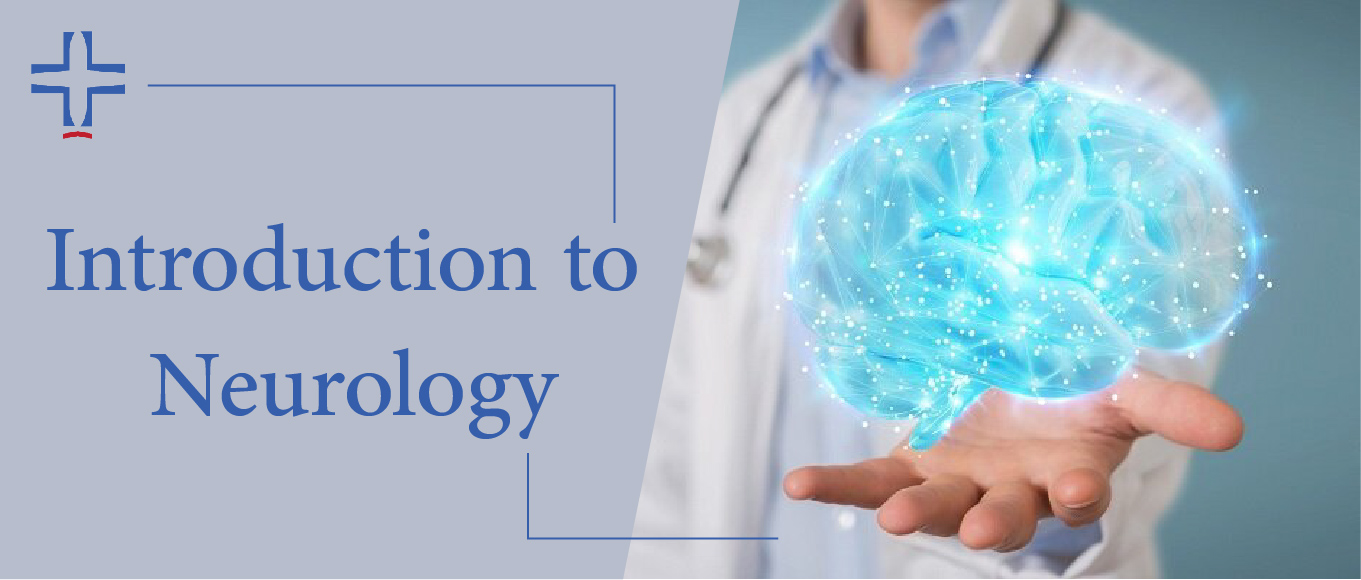
Neurology is one of the most complicated branches of medicine concerned with the modus operandi and treatment of disorders of the nervous system. The nervous system is a complex, sophisticated system that adjusts and harmonizes body functions. It has two major divisions:
• Central nervous system: the brain and spinal cord
• Peripheral nervous system: all other neural components, such as eyes, ears, skin, and other "sensory receptors"
The root of the word comes from Modern Latin neurologia or Modern Greek neurologia (the 1660s) and it means nerves( the nervous system) + -logia which refer to studying specific subjects.
A doctor who specializes in the neurology field is named a neurologist. Neurologists do not perform surgeries. If one of their patients requires surgery as a chance of treatment, they refer them to a neurosurgeon for the continuation of treatment procedures.
The neurologist cures complications that impress the brain, spinal cord, and nerves, such as:
• Cerebrovascular disease, such as stroke
• Demyelinating diseases of the central nervous system, such as multiple sclerosis
• Headache disorders
• Infections of the brain and peripheral nervous system
• Movement disorders, such as Parkinson's disease
• Neurodegenerative disorders, such as Alzheimer's disease, Parkinson's disease, and Amyotrophic Lateral Sclerosis (Lou Gehrig's disease)
• Seizure disorders, such as epilepsy
• Spinal cord disorders
• Speech and language disorders
Although the history of neurology science dates back to prehistoric periods thousand years before christ in ancient Greece, the academic disciplines began in the 16th century.
The systemic way of approaching the nervous system has developed a lot during these years.
Neurology has a variety of fields that are very superfine like :
• Neurophysiology
• Neuroanatomy
• Neuropharmacology
• Behavioral neuroscience
• Developmental neuroscience
• Cognitive neuroscience
• Systems neuroscience
• Molecular neuroscience
5 Neurological Conditions and SymptomsYou Should Look Out For :
1. Headaches:
Headaches are the most general neurological ailments and can affect anyone at any age. Whilst many times a headache shouldn’t be anything too serious to be concerned about, if your headache comes on suddenly and again and again, you should visit a doctor, as these could be symptoms of a fundamental
Situation.
2. Epilepsy and Seizures :
Epilepsy is a frequent neurological disorder presupposing abnormal electrical function in the brain that makes you more receptive to having reiterated, unprovoked seizures. Unprovoked means the seizure can not be explained by exposure to or withdrawal from drugs or alcohol, as well as not due to other medical conditions such as severe electrolyte abnormalities or very high blood sugar.
3. Stroke
Strokes, which affect approximately thousands of people each year, are one of the most climacteric neurological conditions to be alert of the severity of capacity of symptoms and resulting disability that can happen. A stroke is usually due to a lack of blood flow to the brain, oftentimes caused by a clot or blockage in an artery. Many interventions can be done to stop a stroke these days, but time is the most important factor (not money) in this case.
4.Alzheimer’s Disease and Dementia
Losing memories is a common situation, especially in older ages. A specific degree of memory loss is a normal part of aging. For example, walking into a room and forgetting the reason may be completely normal.
Although, there are pieces of evidence that may indicate something more grievous, such as dementia or Alzheimer’s disease. These symptoms may include getting lost, having problems in managing finances, difficulties with daily activities, leaving the stove on, disremembering the names of family members and close friends, or problems with language.
Dementia is a slowly progressive disorder and should be evaluated by a neurologist. Whilst there is no treatment, there are medications and special therapies that can help manage symptoms and slow down the progress.
5.Parkinson’s Disease
Parkinson’s disease is a progressive nervous system disorder that influences the arrangement of body functions. Broadly, it becomes more common as you age, impacting about one million people in the USA. At present, there is no treatment for Parkinson’s disease and its hard condition, but many cure options are accessible.
Symptoms of Parkinson’s disease usually get worse over aging.
Iran is a major hub of medical tourism for all types of procedures, neurology disorders included. You can count on Iranian neurologists and their experiences. Furthermore, Iran possesses some of the best medical facilities to constitute in the region.
In comparison with other European or American countries, patients can utilize high-quality services at much lower prices.
Ermateb medical Tourism team provides the offers with the highest quality for you. You can contact us to know about qualifications and after that take a comfortable trip for your treatment.
We do our best to solve your health disorders and make an easy life for you as our special patients.
More Study:
Follow Us Through Social Networks

